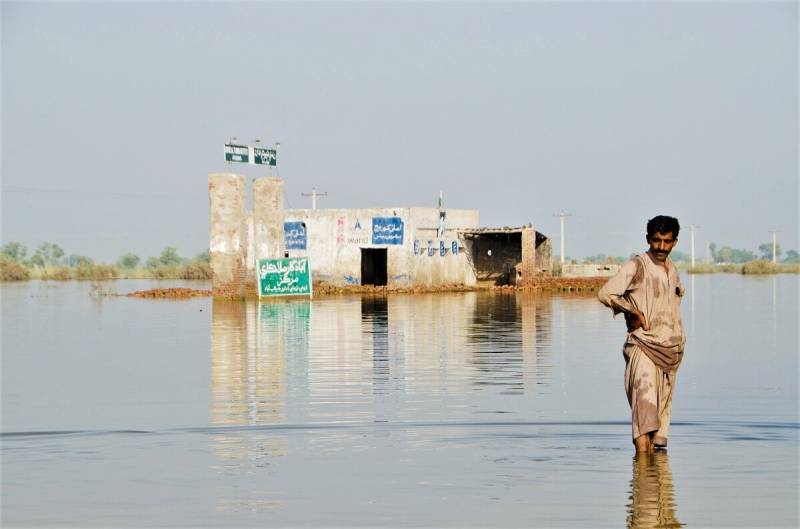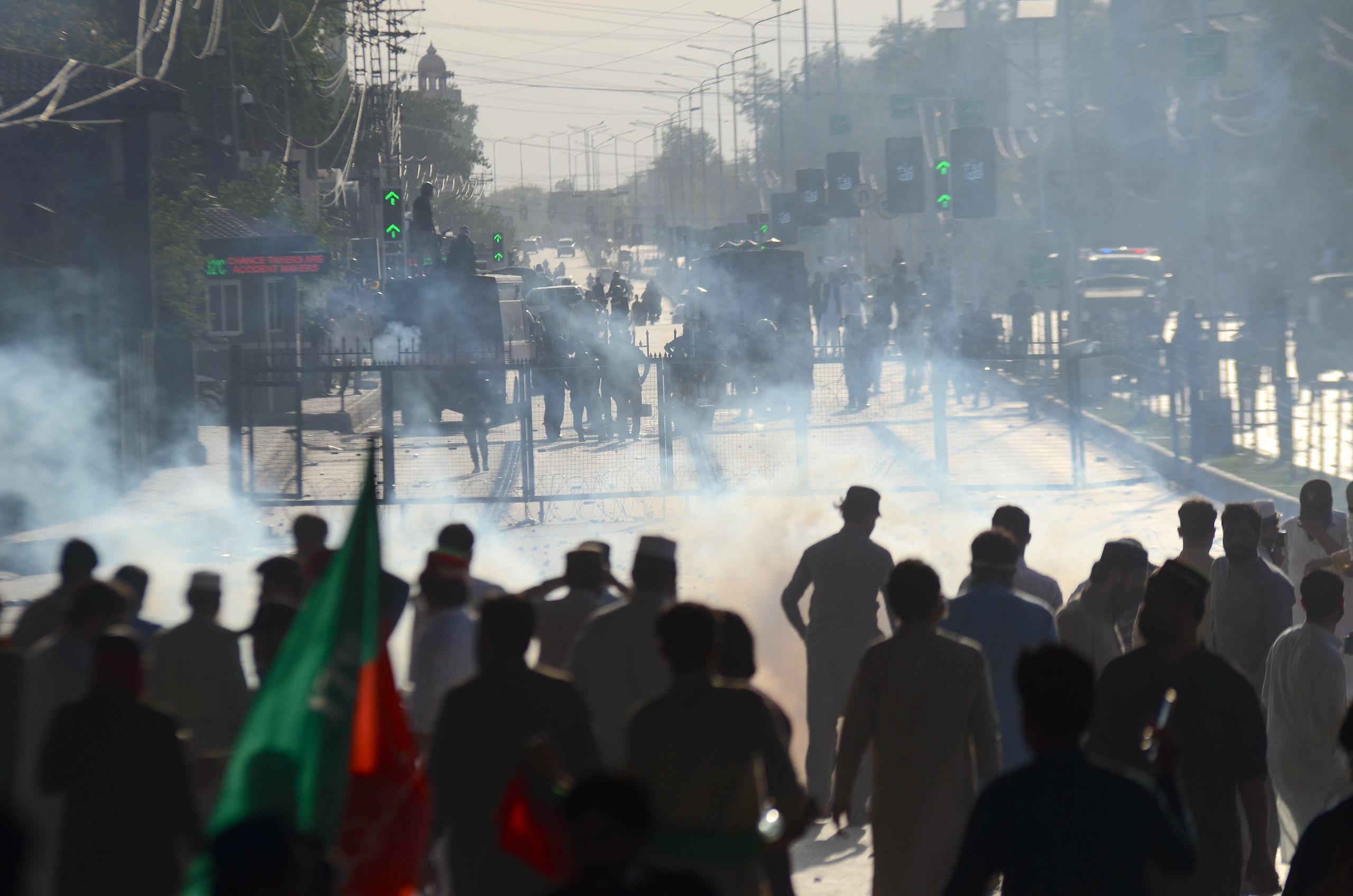
By Nazish Qureshi
The ongoing political turmoil in Pakistan is distracting its government and the public from the critical challenge of climate adaptation. One of the key challenges being neglected is the aftermath of last year’s August floods, which displaced nearly eight million people in Pakistan. The Internal Displacement Monitoring Centre named the floods the world’s largest disaster displacement event in 10 years.
But ever since April 2022, when the former Pakistani Prime Minister Imran Khan lost a no-confidence motion, the country has seen violent face-offs and heavy-handed state action. The shift in attention has been most evident in how official periodic updates on the state of flood-affected people stopped in November 2022, resulting in a lack of transparency regarding rehabilitation efforts.
Flood-affected population neglected
As part of its Floods Response Plan, Pakistan declared a need for $816 million to help recover from these floods. However, as of July 2023, only 67.7 percent of this plan has been funded. Without the required funding, the government struggles to deliver the needs of all identified sectors. This has resulted in severe consequences, including an “alarming surge” in food insecurity among those in flood-affected areas. In a joint 2023 outlook report, the Food and Agriculture Organization and the World Food Programme designated Pakistan as “very high concern” for food insecurity, noting the country has a “high number of people facing critical, acute food insecurity.” Millions of children living near stagnant water in flood-affected areas are at risk of dying from water-borne diseases. Many are suffering from acute malnutrition.
There has been no budgetary increase in the NDMA’s annual funding, despite a number of critical limitations it has identified since 2022’s floods
Extreme heat and other climate-induced threats are on the horizon. But instead of ringing alarm bells and immediate action, military authoritarianism is clamping down on all forms of dissent, peaceful protest and freedom of speech. Pakistan’s power struggle is disrupting governance amidst a misplacement of priorities.
Khan’s previous government made climate action one of its key messages, with initiatives such as a massive tree-planting programme, pioneered in Imran Khan’s home province of Khyber-Pakhtunkhwa and extended to the country. The current government is much more focused on infrastructural development, but neither issue is seeing much action in the current situation.
Bad news in the budget
The new government’s 2023-2024 fiscal budget features a 16 percent hike in military spending. Meanwhile, the climate change division’s budget has been slashed by more than half with a reduction of 58 percent from last year. Last year, special flood-response funding was put in place for the country’s National Disaster Management Authority (NDMA). During this fiscal round, that was removed.
Additionally, there has been no budgetary increase in the NDMA’s annual funding, despite a number of critical limitations it has identified since 2022’s floods. Such limitations include a lack of comprehensive flood telemetry systems, weather stations, disaster-management personnel, risk and hazard assessments and heavy-duty earthmovers. Each of these is crucial to monitoring the early signs of natural disasters and implementing a swift response, so Pakistan’s vulnerability persists.
The budget cuts come in tandem with the discontinuation of some nature-based climate solutions that were spearheaded by the previous government. For example, the 10 Billion Tree Tsunami afforestation programme ended on June 30 this year, without rolling over to the new fiscal year. Elsewhere, the scaling-up of the Glacial Lake Outburst Flood project in northern Pakistan (a flood risk reduction programme run in partnership with the UN Development Programme) is set to expire at the end of this year, with no indication of renewal.

Some hope, but limited time to act
Not all the news is negative. The chapter on climate change in Pakistan’s Economic Survey 2022-2023, shows a growing allocation and – crucially – utilisation of funds from 2018 onwards for areas like water, sanitation and hygiene (WASH). The Climate Adaptation Plan that was underway when the survey was released received cabinet approval on July 26. Pakistan’s flagship Living Indus Initiative, which caters to the most important river basin in the country, is likely to benefit from a Memorandum of Understanding signed with China in June on water conservation, drought relief and other sustainable development matters.
For Pakistan to fully benefit from such initiatives, however, political parties must find a way to cooperate on national priorities. There is less than half a year until COP28. Before this, it is imperative that Pakistani leadership – across political parties – demonstrates how it is protecting those frontline communities impacted disproportionately by the climate crisis, including flood-affected displaced people. Only when political opponents learn to deal with domestic issues in a peaceful and stable manner can Pakistan rightfully demand climate reparations from those rich countries that pursued a polluting pathway to development.
Disclaimer: This piece was originally published here

